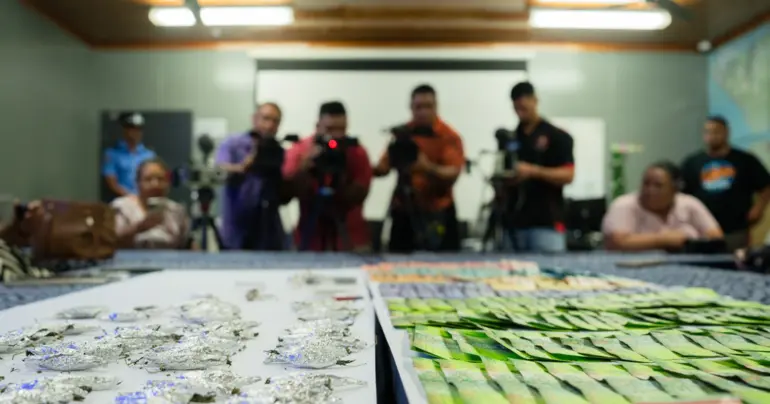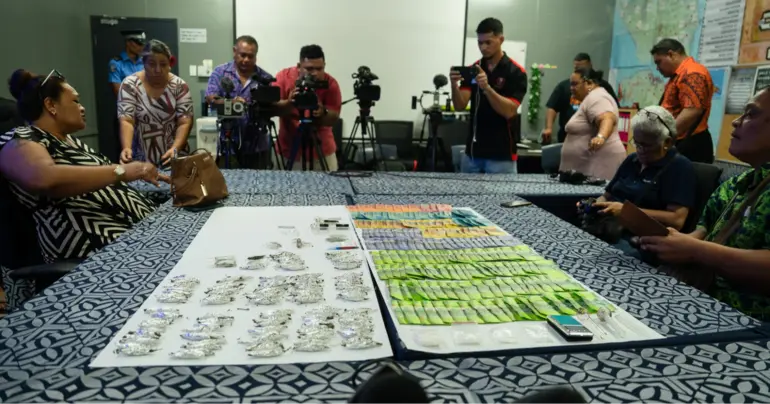Plastic switch could hurt environment: expert
 By Marc Membrere
•
07 March 2021, 12:00PM
By Marc Membrere
•
07 March 2021, 12:00PM
A decision by a drinks manufacturer to switch from bottles to plastic for one of its major products could have ramifications for Samoa’s waste management and the broader environment, an expert has warned.
Anthony Talouli, told the Samoa Observer a decision by Samoa Breweries Limited to abandon bottled Coca Cola for the plastic variety means the country will have more plastic waste to manage.
The Secretariat of the Pacific Regional Environment Programme (S.P.R.E.P.) Acting Director for Waste Management and Pollution Control says plastic pollution impacts the coastal and marine environment and can also affect the natural food chain.
“Plastic pollution and marine debris is defined as any persistent, manufactured or processed solid material discarded, disposed of, lost or abandoned in the marine and coastal environment,” he said.
“There are a number and variety of negative impacts from marine debris, which range from the macro to micro-scale.
“One impact is entanglement of marine wildlife by abandoned, lost or discarded fishing gear. This includes entanglement of highly migratory species such as whales and turtles.
“These are iconic to Pacific culture and heritage so an impact on these will have an impact on Pacific culture and heritage.”
Last month the Samoa Breweries Limited General Manager, Brent Adams, told this newspaper that the company together with Coca-Cola Amatil are committed to support the local recycling programmes.
This includes a collection process to ensure bottles and cans are processed off the island.
Mr Adams added that Samoa Breweries aren’t the first to import plastic and tin into the country and will be proactive in terms of their waste management policy.
But Mr Talouli, when asked if the company should have continued to use glass bottles instead of plastic, said: “It is not for S.P.R.E.P. to make a judgment on an economic decision made by a company on the importation of products – but from an environmental point of view, we would need to consider the net environment benefit when looking at different processes.”
Looking at the wider impact of plastic waste on the environment, the S.P.R.E.P. manager believes that it does have an effect on the food chain.
“Plastic debris can act like a sponge in the marine environment to absorb toxic chemicals which, if ingested, can affect their reproductive system and can then be transferred up the food chain – affecting us.
“Other impacts of marine debris include navigation hazards to vessels and smothering of deep sea benthic habitats.”
“On the one hand, yes, having more plastics has the potential to cause more plastic pollution if not managed appropriately.
“We know that Samoa is considering implementing an advanced recycling fee system that would really help with this.”
According to Mr Talouli, there is work being done on plastics globally and these include MARPOL (International Convention for the Prevention of Pollution from Ships) assessments to quantify the amount of plastic found in marine life.
“The application of the precautionary principle suggests that we understand more about glass than plastic, so moving from this should be a well-considered decision, and not just be based on business economics,” he said.
International donor and development partners also see plastic waste as an important issue, consequently, Mr Talouli says that the significance of the Basel Convention – an international treaty to reduce the movements of hazardous waste between nations – cannot be overlooked.
“Samoa has put bans in place for single-use plastic items which has been very successful and we commend Samoa for doing that,” he said.
“For P.E.T. (polyethylene terephthalate) and other plastic products Samoa is considering putting in place an advanced recycling fee, this will help towards that.
“Samoa has a good waste management system. Behaviour change for communities is also key to addressing plastic pollution to stop littering.
“We should look to make our purchasing choices in an informed way: do we need this packaging? Is there an alternative?
“Can I get the same product in a different way or is there a product that does not have the same plastic content?
“At a minimum is this product virgin plastic or does it incorporate recycled content as we are only truly recycling when we buy recycled content products.”
 By Marc Membrere
•
07 March 2021, 12:00PM
By Marc Membrere
•
07 March 2021, 12:00PM











